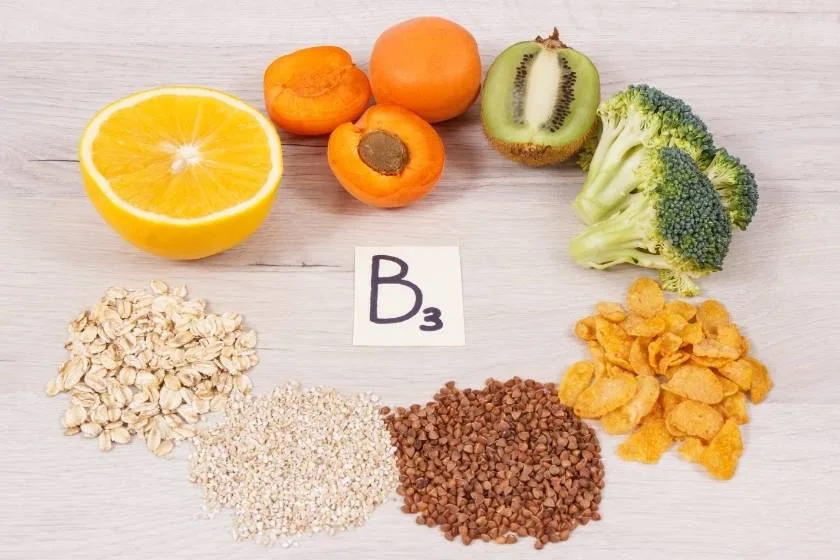Vitamin B3 is a soluble vitamin that is vital for our health. This nutrient, also known as niacin, is an important part of many chemical reactions that keep our body functioning properly. In this article, we will examine in detail the benefits, harms, deficiency symptoms of vitamin B3 and from which foods we can get this valuable vitamin.
What Does Vitamin B3 Do?
Vitamin B3 is involved in many vital functions, including energy production and DNA repair. It supports the normal function of cells in the body and helps maintain nervous system health. It is also known to help regulate cholesterol levels and improve heart health.
What Does Vitamin B3 Do, What are the Benefits?
Vitamin B3 has many positive effects on health. These include:
- Supports Heart Health: It can reduce the risk of heart disease by lowering cholesterol levels.
- Supports Metabolism: It helps the body convert carbohydrates, fats and proteins into energy.
- Improves Skin Health: It can be effective in treating skin problems such as sun damage and supports a healthy skin appearance.
- Supports Nervous System Function: May improve brain health and nerve communication.
What are the Harms of Excess Vitamin B3?
Although vitamin B3 offers many health benefits, it is important to remember that too much can be harmful to the body. Excessive intake of vitamin B3 can cause side effects such as rashes, itching, nausea and liver damage.
What are the Symptoms of Vitamin B3 Deficiency and Which Diseases Does It Cause?
Vitamin B3 deficiency can lead to symptoms such as skin rashes, fatigue, headaches, memory problems and digestive problems. Long-term deficiency can lead to a condition called pelagra, which can cause serious health problems such as dermatitis, diarrhoea and even dementia.
What is Vitamin B3?
Vitamin B3 can be obtained from both animal and plant sources. Among the foods that can be a good source of vitamin B3:
- Red meat
- Chicken meat
- Fish
- Peanuts
- Avocado
- Green vegetables
- Whole grains are found.
These foods, when consumed as part of a healthy diet, can help meet the body’s need for vitamin B3.
What is the Daily Vitamin B3 Requirement?
The daily vitamin B3 requirement varies depending on age, gender and other health conditions. It is recommended that an adult woman should take an average of 14 mg of niacin daily and an adult man 16 mg. For pregnant or breastfeeding women, this amount may increase even more.
Vitamin B3 is a vitamin that is essential for our health and offers a wide range of benefits from energy production to skin health. It is possible to get enough vitamin B3 through a balanced and varied diet. However, when signs of deficiency or excess are noticed, it is important to consult a health professional. This article aims to be a comprehensive resource for those seeking information on topics such as “what vitamin B3 does” and “what vitamin B3 is found in”.

